By Islam Farag, Cairo / Egypt
It was noteworthy that Iranian President Masoud Pezeshkian took advantage of his visit to Qatar last week, which followed a missile attack launched by Tehran against Israel, to threaten a harsher response if Tel Aviv tried to respond to its missile attack.
The announcement of this threat from a Gulf capital was a puzzling issue and raised questions about the position of the Gulf states on the Iranian-Israeli conflict, no matter how much it was said that Pezeshkian’s statements were logical within the time context of the visit, which immediately followed his country’s missile attack.
The Gulf position on this conflict cannot be understood before knowing the nature of the Gulf position on Tel Aviv and Tehran before the Israeli war on Gaza, which has been ongoing for a year, and is the direct cause of the escalation between the two countries.
Exporting the revolution
Since the Islamic Revolution in Iran in the late 1970s, the Gulf states ruled by monarchies have been wary of the new regime in Tehran, especially after it adopted the concept of “exporting the revolution” to neighboring countries.
In the early years of this new regime, the mullahs in Tehran rushed to wage a devastating war against Iraq, due to border disputes. That war lasted for 8 years, during which the Gulf states were forced to support Saddam Hussein’s regime as a protective shield for them from any expansion or victory for the mullahs’ regime that could be translated into weakening the Gulf capitals.
But the magic backfired. Saddam Hussein, whose country was financially exhausted by war, turned on his supporters and invaded Kuwait in 1990, claiming its territory as part of his country’s historical lands. But the real goal was to seize the Gulf state’s oil.
An international coalition, at the request and with funding from the Gulf states, managed to expel his troops from Kuwait a few months later. This was the beginning of the collapse of his regime, which continued to suffer from international sanctions until the Americans overthrew it in an invasion that took place in 2003 and was justified by the desire to establish democracy in this country.
Iraq fell like a ripe apple into the hands of the Iranians, who exploited its Shiite majority and deteriorating security conditions, turning it into an advanced Iranian front by forming militias and a controlling political class loyal to Iran.
As Iran moves forward with its nuclear program and its influence grows through militias created in the countries surrounding the Gulf states, Iraq, Lebanon and Yemen, and its military intervention to save its ally Bashar al-Assad in Syria, the Gulf states have come to see their security and stability as captive to Iranian intentions and ambitions.
These countries rushed to strengthen their security and defense relations with the United States in a remarkable way, but all of that did not reassure them for fear that Washington would fail to defend them if the situation became serious.
Easing tensions with Iran
Therefore, the Gulf capitals decided to end the tension with Tehran. Qatar chose to establish warm relations with the mullahs’ regime, especially after the blockade imposed on it by its neighbors. While the UAE, three of whose islands Iran has occupied for decades, maintained normal and economic relations with Tehran.
As for the Sultanate of Oman, it is a country that has a special, strong and long-standing relationship with Iran, due to the sectarian proximity between the two countries. Muscat also was an important player in mediating between Tehran and the West, in many controversial issues, especially the nuclear program.
But Saudi Arabia’s relations with Iran remained unprecedentedly tense following the mullahs’ support for the Bahraini demonstrations in 2011, the Houthi rebellion in Yemen in 2014, and Bashar al-Assad’s war on the Syrian revolution. In 2016, Riyadh severed diplomatic relations with Iran after its embassy in Tehran and consulate in Mashhad were stormed.
But in 2023, Riyadh reached the same path as its Gulf neighbors by accepting the return of relations with Iran under understandings between the two countries that were sponsored by China.
Normalization with Israel
But the paths of strengthening relations with Washington and improving relations with Tehran were not enough to reassure the ruling regimes in the Gulf about the fates of their countries.
In September 2020, the UAE and Bahrain surprised us by signing peace agreements with Israel. Despite all the justifications that these agreements would contribute to resolving the Israeli-Palestinian conflict, Abu Dhabi and Manama have since strengthened relations with Tel Aviv at the popular and official levels without committing themselves to developing these relations on the basis of a similar development in resolving the conflict.
The decision of the two capitals was a strategic one, as they considered that establishing a security and defense relationship with Tel Aviv represents a counterweight that may protect them from any potential Iranian encroachment on their countries.
Even Saudi Arabia is proceeding with the same path, albeit within complex and complicated negotiations with Washington, in which Riyadh requires strong American security guarantees to protect the kingdom and the establishment of a civilian nuclear program that allows uranium enrichment on its territory and some Israeli commitments to achieve progress in establishing an independent Palestinian state.
Precise calculations
From all of the above, we can understand the position of the Gulf States on the Israeli war on Gaza, and then their position on the escalation that took place between Tehran and Tel Aviv following the expansion of the war to the Lebanese front.
The positions of the Gulf States regarding the developments of the conflict since its beginning have been characterized by very precise calculations that primarily aimed to avoid getting involved in it and at the same time not to retreat from the paths that those countries have taken with Israel and Iran.
The UAE is the most prominent Gulf state to normalize relations with Israel, and since the Abraham Accords, bilateral relations between the two countries have been on the rise. Therefore, it was the only Arab state to criticize Hamas’s attack on October 7, 2023, but later criticized the Israeli operations in Gaza as well, called for a ceasefire, and condemned Israel’s storming of the Rafah crossing. At the same time, UAE-Iran relations are very sensitive. They maintain strong economic relations, as confirmed by trade figures.
Saudi Arabia was moving towards normalization with Israel, but the Gaza war postponed this plan. Saudi Arabia strongly condemned the Israeli war, accusing it of committing heinous war crimes, which gave the impression that the gap between the two countries had widened.
In contrast, Saudi-Iranian relations entered a new phase that led to a decline in Houthi attacks on the kingdom. However, some reports claimed that Riyadh intercepted some missiles launched by the Houthis towards Israel.
While Qatar played a pivotal role, in partnership with Egypt, in mediation efforts to stop the war in Gaza in exchange for the release of Israeli prisoners. As the war escalated to the Lebanese front, Doha was the destination of the Iranian president, coinciding with an extraordinary meeting of the foreign ministers of the Gulf states. This indicates a role that Qatar may play in reducing the escalation between Tehran and Tel Aviv.
So, the Gulf states are walking a tightrope so as not to appear biased towards one party at the expense of the other, and without getting involved in appearing excessive in their support for Palestinian rights.
They are doing this not only from an idealistic political perspective, but also as an attempt to prevent the region from sliding into an arena of endless chaos, of which they may be the first victims, if the flames of war reach them directly or indirectly through the halting of their economic interests through the disruption of global oil and gas supplies and the halting of travel, which is the basis of the economy of those countries.
Therefore, the first thing these countries were keen to do during their participation in a meeting of Asian countries, which was held in Qatar, was to inform Tehran of their neutrality. According to Reuters, the Gulf states, amid their fears that a wider escalation in violence could threaten their oil facilities, reassured Iran of their neutrality in its conflict with Israel.
Fake neutrality
But the important question is: Are the Gulf states really neutral in the conflict between the two parties?
It can be said clearly that this neutrality may be real if we are talking about the Sultanate of Oman, which has refused to pursue a policy of axis for decades. It may also extend to Kuwait, which rejects any rapprochement with Israel, but has a complex relationship with Tehran dictated only by the circumstances of the neighborhood.
This neutrality may also apply to Qatar, which plays important mediating roles in many aspects of the conflict with Israel. If there is any bias that Doha can be accused of, it may be bias in favor of Tehran, which stood by it during the years of the Gulf blockade, and because Tel Aviv is waging a fierce war against the armed Islamic groups that Qatar sponsored and played roles that consolidated its influence in its Arab and Islamic surroundings.
This bias was clearly evident in the media support provided by Al Jazeera, owned by Doha, to Tel Aviv’s opponents by exposing Israeli crimes and its violation of international law, while highlighting the humanitarian tragedy faced by these vulnerable people.
But this neutrality does not in any way apply to the rest of the Gulf countries: the UAE, Bahrain and Saudi Arabia.
Saudi position
As for Riyadh, the most influential Gulf capital in its surroundings, it has no objection, on the strategic level, to any Israeli escalation that would weaken the power of Iran’s arms in the region.
The Kingdom believes that Tehran’s arms in Iraq, Lebanon and Yemen constitute a strangulation of the Kingdom’s geopolitical sphere, from which it has already been severely harmed.
It was not easy for the Kingdom, the leader of the Sunni world, to see its large neighbor Iraq, which was ruled by Sunnis for decades, turn overnight into a state controlled by Shiites loyal to Iran and obeying its orders.
At the same time, Hezbollah’s great influence in Lebanon was a thorn in the Saudi influence circle in this small country. The 1990 Taif Agreement sponsored by the Kingdom was the final word in the civil war in this country, but Hezbollah forcibly monopolized all of this country’s resources and institutions under the pretext of its role in cleansing southern Lebanon from the Israeli occupation.
However, it quickly encroached on the state’s institutions and paralyzed them in favor of its role as the spearhead of Iranian influence, which is tinged with Shiite tinge, and is an objective contradiction to Saudi influence, which is based on the Kingdom’s position as the leader of the Sunni world.
Naturally, the kingdom was forced to wage a long, uncontested war in its backyard, Yemen, against the Iranian-backed Houthi group. The group seized power and threatened the kingdom’s security with missile attacks. Saudi Arabia saw this as part of Tehran’s finger-biting game against it.
Therefore, the Kingdom, no matter how much its relations with Iran improve, would prefer not to be surrounded by this armed Shiite crescent, acting on the orders of the mullahs’ regime. The Israeli escalation offers it an opportunity to cut off the Iranian arms without getting involved in a direct confrontation with Iran.
In fact, the Saudis view the contradictions between them and Israel over resolving the conflict over the Palestinian issue as a secondary contradiction that does not affect their overall vision of the interests of the Middle East. While they consider their contradictions with Iran a major contradiction that they see as an existential threat, neither of them can survive without eliminating the other.
As for Bahrain, at the beginning of the Arab Spring, it witnessed an uprising by its Shiites, who represent the majority of the population, against the Sunni monarchy there. Manama accused the Iranian mullahs of being behind and inciting this uprising.
Saudi Arabia realized this and its seriousness, and immediately sent the Peninsula Shield Forces to save Bahraini monarchy.
Therefore, any Israeli escalation against Iran and its proxies in the region pleases Manama, as it limits Tehran’s influence in general and frustrates its supporters inside Bahrain regarding any hopes of changing the political situation there.
Economic calculations
But in my opinion, the UAE has other reasons that make it biased towards Israel in this conflict, apart from the sectarian contradiction with Iran.
For Abu Dhabi, a key defense partner of the United States, as US President Joe Biden declared during Emirati President Mohammed bin Zayed’s recent visit to Washington, it has economic and strategic ambitions that could be fulfilled by an Israeli victory in the war now raging.
The UAE is an active and founding member of the India-Middle East-Europe trade corridor project. The proposed corridor would run across the Arabian Sea from India to the UAE, then pass through Saudi Arabia, Jordan and Israel before reaching Europe. The project would also include a new submarine cable and energy transmission infrastructure.
This corridor, which is primarily a Western project, represents a strong competitor to the Belt and Road Initiative, the Chinese project that excluded the Gulf states and included Iran.
The UAE is betting on the trade corridor to enhance its commercial and economic influence as one of the most important port operators in the world. This corridor passes through the Strait of Hormuz, where Iran has significant influence. Therefore, Abu Dhabi fears any victory by Iran or its proxies that would enhance this influence or threaten commercial traffic through the corridor or subject it to blackmail.
On the other hand, the UAE has a vision for the Middle East region based on the fact that stability in the region will not be achieved before eliminating the various forms of political Islam, including armed Islamic groups, regardless of its sect. Therefore, you find it in any line opposing these movements, putting them all in one basket as terrorist organizations.
Therefore, any war in which these organizations participate, the UAE will naturally be on the opposite side. Therefore, it is easy and logical to say that it is not neutral in a battle against Iran’s agents in the region or those who fight with its support.
The warming relations between Abu Dhabi and Tel Aviv have reached the level of an undeclared alliance. Nothing justifies the lack of declaration except that the UAE fears that its oil facilities will be a target for fire from Tehran and its agents.
The battle that Israel is waging in the region in Gaza and Lebanon seems to be in the interest of the Gulf monarchies. They are not expected to change their approach to the situation. Their support for the Palestinians has not gone beyond some humanitarian aid and some words of political support, something that is likely to be repeated on the Lebanese front.
However, they fear that a complete Israeli victory will be achieved on both fronts, fearing a vacuum of influence in the region that will only be filled by Tel Aviv, which represents a strategic dilemma for the countries of the region, especially in the absence of Gulf and Arab political and military mechanisms capable of imposing policies that achieve Arab interests without making many concessions to Israel.
Therefore, the Gulf states are walking a tightrope in dealing with the ongoing conflict, and they hope that its results will not be decided in a way that radically changes the equations and balance of power in the region.





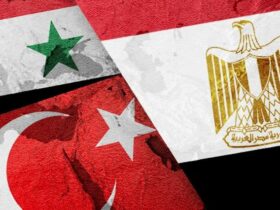

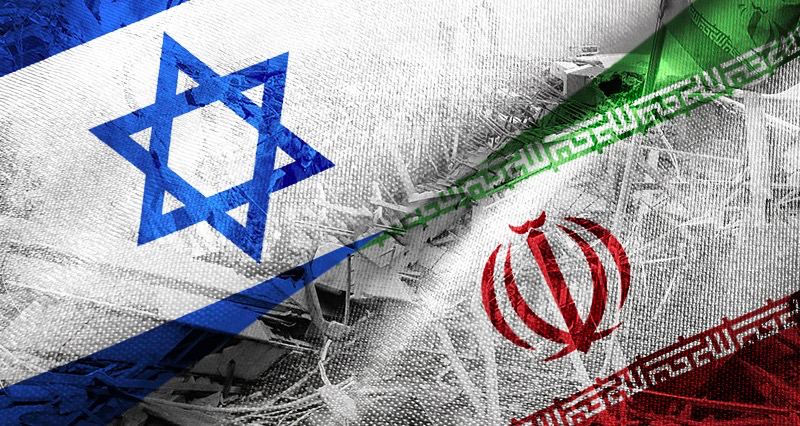

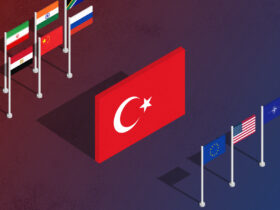
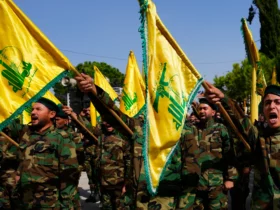
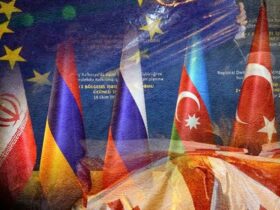

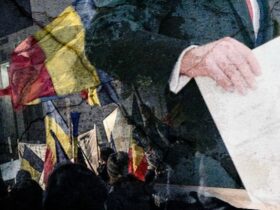
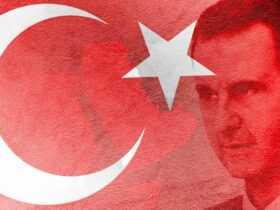
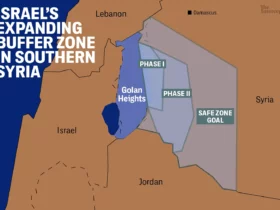

Leave a Reply